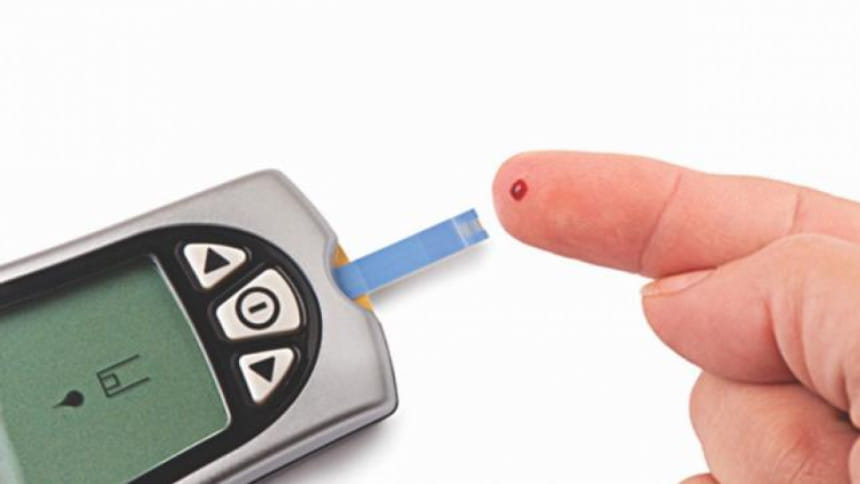Type-2 diabetes: Decrease in intestinal enzyme main cause

People aged between 30 and 60 with the deficiency of an enzyme – Intestinal Alkaline Phosphatase – are at least 14 times at higher risk of developing diabetes than those without deficiency, finds a study.
A total of 14 researchers, 13 of them Bangladeshi and 1 American, from multiple local and foreign universities conducted the research by a prospective cohort study on 574 non-diabetic people between 2015 and 2020.
In the study, considered a major breakthrough in battling diabetes, the researchers said this deficiency in people, whether they are obese or not, is the main reason behind type-2 diabetes.
By testing IAP levels, even non-diabetic people can now find out whether they will get diabetes in the future and take early preventative measures, including taking IAP supplement accordingly.
Speaking to The Daily Star, Dr Madhu S Malo, lead investigator in the study, said, "We have confirmed that the deficiency of this enzyme causes type-2 diabetes. A mass campaign can now be launched to identify those vulnerable to the disease."
The study, funded by Bangladesh Medical and Research Council, the Ministry of Education, National Institute of Health in USA and the Bill and Melinda Gates Foundation, was published in the "BMJ Open Diabetes Research & Care" journal recently.
"Eradication of the worldwide type-2 diabetes pandemic is possible through early diagnosis of IAP deficiency followed by pre-emptive preventive measures," the report stated.
Based on the revelation, the researchers have already devised a home kit to test IAP levels in stools.
IAP levels lower than 65 units per gram of stool would mean there is a deficiency and higher than 115 units would mean there are chances of protection from developing diabetes.
Based on a "successful trial" on mice, the research team has identified some affordable supplementations that can increase IAP.
They are now planning a clinical trial on humans to find proper supplementations, said Madhu S Malo, also a former faculty member at USA's Harvard Medical School and an adviser to the Diabetic Association of Bangladesh, which coordinated the study.
Speaking on the occasion, Dr AK Azad, president of the association, said, "We think this study is a breakthrough, which can greatly contribute to the prevention of diabetes worldwide."
In Bangladesh, there are around 1.5 crore diabetic patients and around Tk 45,000 crore are spent on diabetic treatment every year.
"If some of this money can be used in nationwide prevention campaigns, we can help identify potential patients faster and stop them from getting the disease in the first place," the researchers said, urging the government to take note in this regard.
WHY DOES IAP DECREASE?
As people get older, the level of IAP decreases as a natural process, but low-grade inflammation can decrease IAP levels rapidly and may even shut down IAP production in the body permanently, according to the researchers.
"Furthermore, the fragmentation of intestinal dead bacterial cell-wall can function as a toxin and decrease IAP levels," Prof Salequl Islam, co-investigator of the study, told The Daily Star yesterday.
Reduction in IAP levels is also associated with unhealthy dietary habits, physical inactivity, and consumption of alcohol and carbonated beverages, he added.
Of all diabetic patients, 85 percent get the disease due to habitual reasons, while 15 percent get it genetically.
THE SOLUTION
Researchers linked to the study said they have found a number of foods that can be used as supplements to battle IAP deficiency.
"Our findings show that these food supplements can remit the IAP deficiency. We are planning a clinical trial on humans, but we need funding support for this promising study," Dr Madhu S Malo said.

 For all latest news, follow The Daily Star's Google News channel.
For all latest news, follow The Daily Star's Google News channel. 



Comments